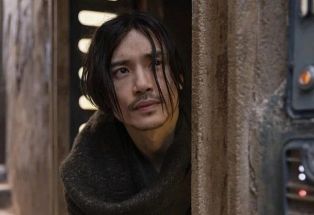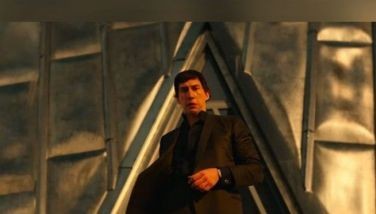Robert Lamm and the Chicago story
October 16, 2002 | 12:00am
 Offhand I cannot think of anybody who joined a group in 1967, enjoyed a tremendous success and stayed on actively recording, touring and doing everything else that bands are expected to do to remain on top during the ensuing years. That is, save for Lamm and three other members of Chicago, Lee Loughnane, James Pankow and Walter Parazaider, who put the band together. The others who later left for various reasons were Terry Kath, who accidentally shot himself in 1978, Peter Cetera who turned solo and Danny Seraphine.
Offhand I cannot think of anybody who joined a group in 1967, enjoyed a tremendous success and stayed on actively recording, touring and doing everything else that bands are expected to do to remain on top during the ensuing years. That is, save for Lamm and three other members of Chicago, Lee Loughnane, James Pankow and Walter Parazaider, who put the band together. The others who later left for various reasons were Terry Kath, who accidentally shot himself in 1978, Peter Cetera who turned solo and Danny Seraphine.
Did he think then that he would still be with Chicago by 2003? "Heavens no," says Lamm who is in New York resting after the group’s recent US tour. "The success of the band speaks for itself but I don’t think anybody in his 20s ever thinks of where they will be 10 or 20 years after. What I decided on was to have a life in music so even if I were not with Chicago, I would still be here making music."
Lamm was born in New York on Oct. 13, 1944 and grew up surrounded by music, the jazz records of his parents, the choir in school and playing the piano in bands while in high school. He studied theory and composition at Roosevelt University in Chicago. It was shortly after this that he was asked to join a group called Big Thing that later became the Chicago Transit Authority.
It was the era of Motown and Glen Campbell and groups like Creedence Clearwater Revival plus leftover Beatles. The guys of Chicago wanted to make music but they were determined to do it their way. "It is all about the music. We wanted to take chances and to experiment," continues Lamm, whose musical influences range from Ray Charles to Jobim and The Beatles.
And experiment they did. It was quite indulgent of the group but instead of doing potential hit singles, they centered on themes that they allowed to flow into whatever entered their minds. The early songs of Chicago were actually suites that often took five or seven minutes a track. It was a no-no during that time. It was also new and exciting. The two-volume first album titled Chicago Transit Authority with its extended cuts and varied repertoire became an instant classic. It produced no hit single but it contains Lamm’s composition Questions 67 and 68, which became known as the prototype of the Chicago sound.
Easily the most evident in this unorthodox approach to rock music was the use of horns that can literally blow your mind away. It was Memphis soul mixed with big band music. It was rock by an orchestra. But there was more. Just as the Beatles did with Sgt. Pepper’s Lonely Hearts Club Band album, Chicago eschewed recording albums made up of possible hit singles.
Despite this, the hits started coming. Pan-kow’s Make Me Smile and Color My World. Lamm’s Questions 67 and 68, Does Anybody Really Know What Time It Is and Beginnings. These songs were actually excerpts from longer works but they prove Chicago’s rare musicality that they also worked as singles.
"There was really no conscious effort on our part to come up with what you’d call a Chicago sound. What we had was a conscious effort to be different. We wanted to see the band as an entity that is not ruled by its members but by the music." This attitude would later come in handy when the band started to experience problems that led to major upheavals among themselves, managers, producers and record companies.
Being one of the first members, one of the three top vocalists alongside Kath and Cetera, it was expected that Lamm would have a larger say on Chicago activities but this was not really the case. "I liked to think most times that I am driving the band but the truth was it was really the managers or the record companies. You do not really know who." The main concern then was getting the Chicago songs down to radio-friendly three minutes and although the guys, Lamm in particular who early on acquired a reputation for candor was openly unhappy about it, there was not much they could do.
The hits continued to happen, Feelin’ Stronger Everyday, Wishing You Were Here, Another Rainy Day in New York City and many others. The albums came regularly one after the other, Chicago II, Chicago III, and so on, each one always a well-thought out superior production that yielded hit singles even while the band itself had no intention of having one.
But along with success came the problems and these were as big and seemingly so formidable. (To be concluded)
BrandSpace Articles
<
>
- Latest
- Trending
Trending
Latest
Trending
Latest
Recommended


























 Exclusive
Exclusive

